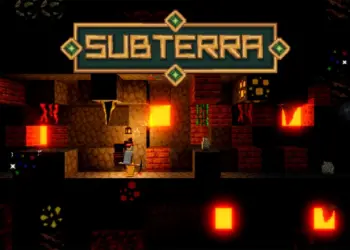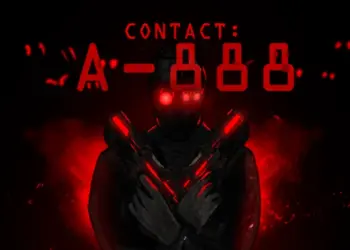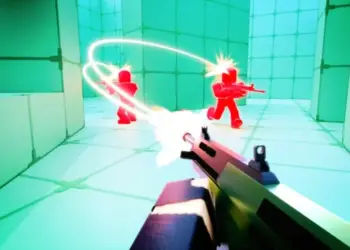Definition of the term
A detonado is a guide that shows, in detail, how to progress within an electronic game. It usually describes each stage, mission or challenge step by step, revealing the most efficient way to get to the end.
In addition to serving as a “map” of the main campaign, the detonation can include strategic tips, the location of important items, alternative routes and solutions to puzzles that often leave players stuck.
Origin and popularization in the 1990s and 2000s
The idea of following game guides is not new, but the term “detonated” was consolidated in Brazil mainly in the 1990s, when specialized magazines such as Super Game Power, Ação Games and Nintendo World published sections dedicated to this content.
With the popularization of the internet in the early 2000s, detonations migrated to forums, blogs and specialist websites. This transition made the guides more accessible and complete, as they could be quickly updated with new discoveries made by the gaming community.
They were also published on the Internet.
Difference between detonation and guide/FAQ
Although they are similar, detonado is not the same thing as guide or FAQ.
- Detonated: generally follows the chronological order of the campaign, showing exactly what to do in each part of the game.
- Guide: can be more comprehensive, covering topics such as advanced strategies, character builds or general tips without following an obligatory line.
- FAQ (Frequently Asked Questions): gathers quick answers to common questions, such as “where to find such and such an item” or “how to defeat a certain boss”, without necessarily detailing the entire game.
This distinction is important because the detonation is positioned as an almost parallel narrative experience: it not only explains how to win, but takes the player through the entire journey of the game.
Types of Detonate
Linear Detonates (step by step from the main campaign)
This is the most traditional type of detonation. They follow the chronological order of the main campaign, showing the player exactly what to do in each stage or mission to progress through the story. They are especially useful in long or complex games, where it is easy to get lost or not know what the next objective is.
A linear detonation is usually straight to the point, without focusing on secrets or extras, acting as a “narrative shortcut” to the end of the game.
A linear detonation is usually straight to the point, without focusing on secrets or extras, acting as a “narrative shortcut” to the end of the game.
Complete detonations (100% of achievements, secrets and collectibles)
Complete detonations are aimed at players who want to explore every detail of the game. They list all the collectibles, secret areas, achievements, alternative endings and even little easter eggs that might otherwise go unnoticed. This type of content is common in open-world games or RPGs, where the exploration factor is central.
The idea is to guide the player to the famous “100% completion”, ensuring that nothing is left out.
Themed detonates (missions, bosses, puzzles, alternative routes)
In addition to the linear and complete ones, there are also themed detonators, which focus on specific aspects of the game. They can be guides to defeating difficult bosses, solving tricky puzzles, finding alternative routes or completing optional missions.
These detonations are useful for those who have already progressed on their own, but got stuck at a specific point, or simply want to optimize their experience in a certain part of the game without following a complete guide.
How Detonados Help Players
Overcoming difficult challenges and bosses
One of the biggest reasons for resorting to a detonation is the difficulty of facing complex bosses or challenges. Many games feature battles that require specific strategy, knowledge of weak points or even unobvious combinations of items.
The detonation guides the player on how to prepare, what weapons or skills to use and what tactics to adopt in order to win without wasting hours on frustrated attempts.
Discover secrets and hidden areas
A lot of the fun of games lies in exploring beyond the main path. However, many titles hide rare items, secret areas and special events that easily go unnoticed.
The detonation works like a treasure map, revealing every hidden passage, chest locations, secret characters and even easter eggs that only appear under specific conditions.
Maximize achievements, trophies and alternative endings
Gamers who like to get the most out of a game also find detonations a powerful ally. Many titles offer achievements and trophies that depend on specific actions, as well as multiple endings that can only be unlocked with the right choices throughout the campaign.
The detonation helps to plan progress, preventing the player from missing out on exclusive content and making it easier to reach the coveted “100%”.
Where to Find Detonados
Printed magazines and guides (1990s and 2000s)
Before the internet became popular, detonations were mainly consumed in game magazines and printed guides. Publications such as Super Game Power, Ação Games and Nintendo World devoted entire pages to maps, tips and step-by-step routes.
There were also special books or inserts released with certain games. These materials were fought over by gamers and often became collectors’ items.
Gamer forums and communities
With the arrival of the internet, detonados have migrated to online forums and communities. Sites like Detonado.org, GameFAQs and Orkut communities (in Brazil) were pioneers in bringing gamers together to share strategies, tips and complete guides.
In this collaborative environment, the content was constantly updated with new discoveries, and each player could contribute solutions to specific parts of the game.
Modern platforms (YouTube, Twitch, specialized sites, wikis)
Today, detonations are everywhere. Platforms such as YouTube and Twitch offer video detonations and live broadcasts, where you can follow the gameplay in real time.
Specialized websites and collaborative wikis, such as Fandom, centralize complete guides organized by topic, allowing quick searches for any part of the game. This evolution has made access to detonations more dynamic and interactive, adapting to today’s way of consuming content.
Detonado vs. Game Experience
Benefits of using detonations
The main benefit of using a detonation is to optimize the player’s experience. It saves time, avoids frustration at points of greater difficulty and helps to better enjoy the content of a game.
For those who don’t have as many hours available or want to explore everything efficiently, the detonator works as a clever shortcut, extending the fun rather than limiting it.
Criticism and controversy over “breaking the immersion”
Despite the advantages, there are those who criticize the use of detonations, claiming that they can break the immersion and take away the sense of discovery. Many argue that following a detailed guide turns the game into a to-do list, reducing the impact of the narrative, the surprise of the challenges and the sense of achievement.
This controversy has always existed: on the one hand, those who advocate total freedom to explore; on the other, those who prefer the security of a tried and tested route.
The personal decision: play freely or follow step by step
In the end, whether or not to use a detonation is a player’s personal decision. Some prefer to immerse themselves in the experience without any outside help, even if it means making mistakes, starting over or spending days trying to overcome a boss. Others value practicality and see no problem in having a “helping hand” along the way.
No approach is right or wrong – each player shapes their own experience according to their preferences, available time and play style.
The Evolution of Detonates
From text to video
The first detonations were essentially textual, published in magazines, forums or websites. With the advance of broadband and streaming platforms, they migrated to video format, especially on YouTube.
In this model, the player not only reads, but watches step by step, following strategies in real time.
This format has brought more clarity, helped beginners and turned content creators into real “guide-masters” for entire communities.
Interactive tools and digital maps
The digital age has opened up space for interactive data. Today it’s common to find navigable digital maps, collaborative spreadsheets and even real-time checklists to track progress within complex games such as open-world RPGs.
These features allow the player to choose what to consult, at their own pace, without having to follow a fixed guide from start to finish.
Artificial intelligence and personalized guides
More recently, artificial intelligence has begun to revolutionize the way we consume detonations. There are already systems capable of offering personalized guides, answering specific questions in real time, such as “where can I find this item?” or “what is the best strategy for this boss with my current character?”.
This evolution points to a future in which detonations will cease to be just static manuals and will become dynamic, tailor-made assistants for every style of game.
Conclusion
The cultural role of game detonations
Details occupy a special place in the history of gamer culture. They have been responsible for bringing gamers together, sharing knowledge and creating entire communities around tips and strategies.
More than just guides, they functioned as a collective record of the gaming experience, documenting secrets, routes and curiosities that might otherwise be lost.
In many cases, they became part of the emotional memory of those who grew up reading magazines or exploring forums in search of help.
Why they still make sense today
Even in an age when games offer more sophisticated tutorials and built-in help systems, detonations are still relevant. They offer depth, practicality and connection between players, whether in detailed videos, collaborative wikis or personalized guides with AI.
For those looking to overcome difficulties, explore every detail or simply optimize their playing time, detonations remain an essential resource – a reflection of the passion for unraveling digital universes down to the last secret.















